I remember my first week in Lisbon like it was yesterday. I walked into a tiny, sun-drenched café.
I ordered an espresso, placing my coins on the counter. I expected a quick, transactional exchange.
Instead, the barista smiled warmly. He asked where I was from. He chatted about the weather. My coffee sat on the machine, waiting. My brain, still wired for efficiency, screamed, “Just give me the coffee!”
That moment taught me my first lesson. Portugal doesn’t run on your schedule. It runs on human connection.
After living here for six years, I’ve learned that the country’s real magic lies in these subtle moments. It’s a place with a unique social rhythm. To truly enjoy it, you need to understand the local customs.
Here are 10 unspoken rules to follow when you visit Portugal.
Contents
- 1 Master the Greeting: It’s More Than “Olá”
- 2 Understand “Portuguese Time”: Punctuality is Relative
- 3 The Couvert is Not Free
- 4 Order Coffee Like a Pro: It’s an Espresso World
- 5 Don’t Speak Spanish!
- 6 Embrace the Silence at a Fado Show
- 7 Carry Cash: The Multibanco Rules All
- 8 Dress to Blend In, Not Stand Out
- 9 Learn to Read the “Polite No”
- 10 Respect the Cobblestones and the Queue
- 11 Conclusion
Master the Greeting: It’s More Than “Olá”

First impressions are everything here. In Portugal, a greeting is a small ritual of respect.
When meeting women, or when a man meets a woman, the custom is two light kisses on the cheeks. You always start with the right cheek. Forgetting the second kiss can lead to an awkward pause. It’s a sign of warmth and familiarity.
Men, however, usually shake hands with each other. A hug or a pat on the back is reserved for close friends or family. It reflects a culture that values both close personal bonds and formal respect.
When you enter any shop, café, or business, always say “Bom dia” (Good morning) or “Boa tarde” (Good afternoon). Using formal titles like “Senhor” (Mr.) or “Senhora” (Mrs.) with older people or officials is also crucial.
Following these simple greeting customs shows you respect the local social structure. It’s one of the most important unspoken rules in Portugal.
Understand “Portuguese Time”: Punctuality is Relative

If you’re meeting a friend for coffee, don’t panic if you’re running late. Time in Portugal is wonderfully flexible. For social plans, arriving 15 to 30 minutes late is completely normal.
Sometimes, it’s even expected. The culture prioritizes the journey over the destination. A good conversation with a neighbor on the way is a valid reason for delay.
However, this relaxed attitude has its limits. This flexibility does not apply to professional meetings or restaurant reservations. In these formal settings, punctuality is a sign of respect.
This approach to time is part of the concept of desfrutar: savoring life’s moments rather than being controlled by the clock.
So when visiting Portugal, relax your social schedule, but be on time for your dinner booking.
The Couvert is Not Free
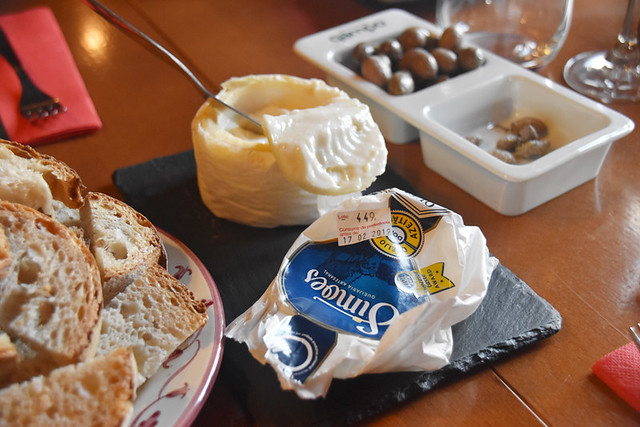
You sit down at a restaurant, hungry and ready to order. The waiter brings a basket of fresh bread, some olives, and maybe a small dish of sardine pâté. You might assume this is a complimentary starter. Be warned: it is not.
This is the couvert, and anything you eat from it will be added to your bill. This is a long-standing dining tradition, not a scam. However, in tourist-heavy areas, the prices can be surprisingly high.
If you don’t want it, simply say, “Não, obrigado” (if you’re a man) or “Não, obrigada” (if you’re a woman). The waiter will take it away with no offense taken.
Knowing this is one of the essential unspoken rules in Portugal for any traveler.
Order Coffee Like a Pro: It’s an Espresso World
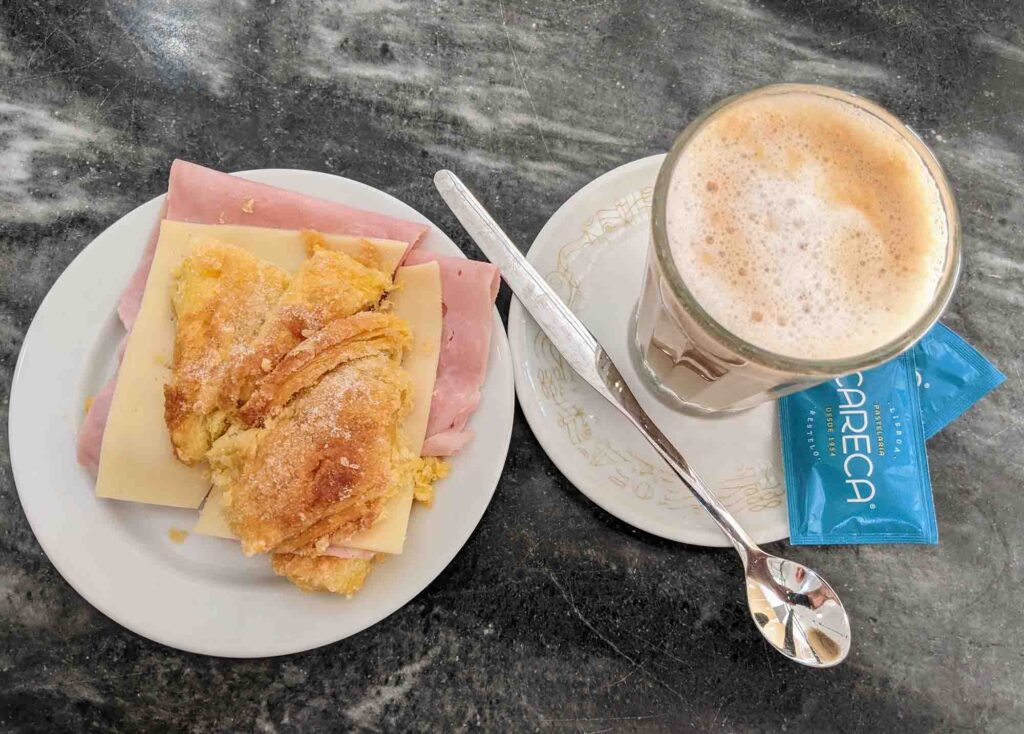
The Portuguese coffee ritual is a cornerstone of daily life. But ordering can be confusing for newcomers.
If you just ask for “um café,” you will get a single, strong shot of espresso. This is the standard. In Lisbon, it’s called a bica, and in Porto, a cimbalino.
A critical rule of the local Portuguese culture is that milky coffees are for the morning. Drinks like a meia de leite (half milk, half coffee) or a galão (espresso with lots of milk in a tall glass) are breakfast beverages.
Ordering one after dinner will immediately mark you as a tourist. Locals often drink their espresso quickly, standing at the counter while chatting with the barista. Here’s a quick guide to help you order.
Portuguese Name
What It Is
Best Time to Order
Um Café / Bica
A single, strong espresso
Anytime, especially after meals
Meia de Leite
Half espresso, half steamed milk
Morning / Breakfast
Galão
Espresso with lots of foamed milk in a tall glass
Morning / Breakfast
Abatanado
A long black coffee (espresso with hot water)
Anytime
Café Pingado
An espresso with a “drop” of milk
Anytime
Don’t Speak Spanish!
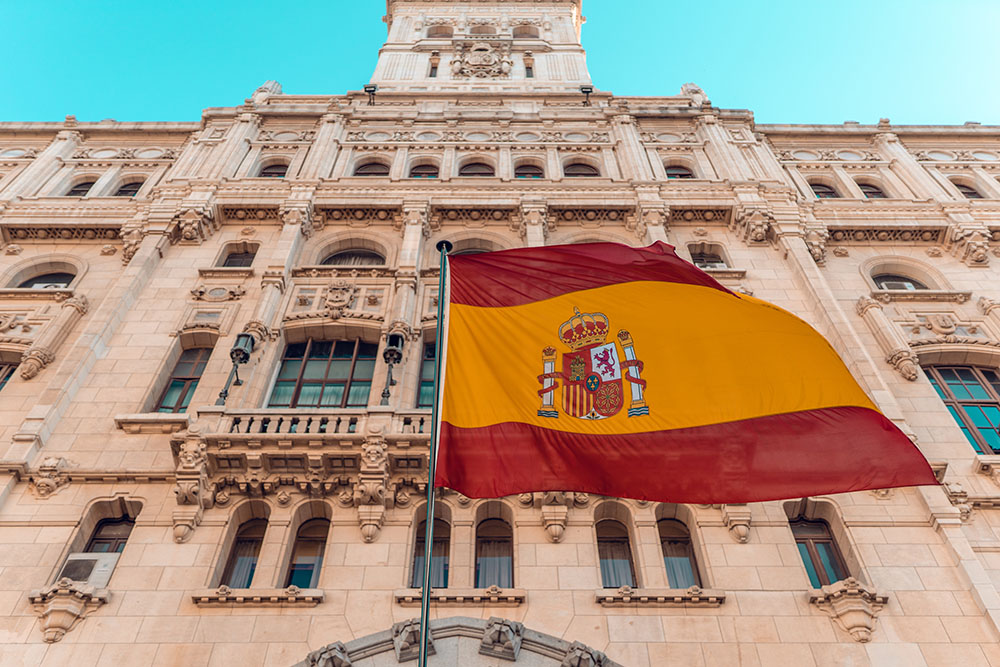
This is a big one. Many visitors assume that because Portugal borders Spain, the languages are interchangeable. They are not.
While many Portuguese people can understand Spanish, addressing them in it can be seen as insensitive.
Portugal has a long and proud history of maintaining its unique identity next to its much larger neighbor. Speaking Spanish can unintentionally dismiss that distinct culture and language.
The polite alternative is to try English, which is widely spoken, especially by younger generations.
Or better yet, learn a few basic Portuguese phrases. This simple effort shows respect and is always appreciated.
Embrace the Silence at a Fado Show
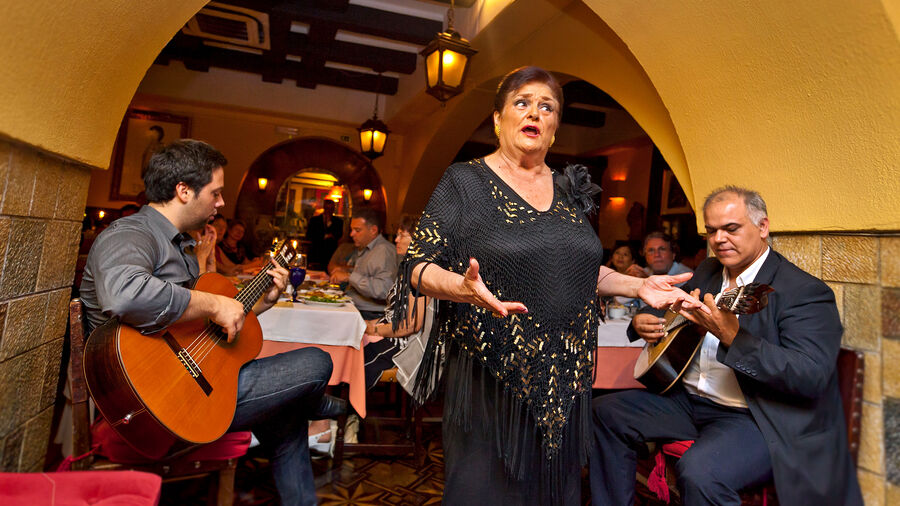
To experience Fado is to feel the soul of Portugal. This beautiful, melancholic music is a UNESCO Intangible Cultural Heritage.
But attending a performance comes with strict etiquette. When the lights dim and the singer begins, absolute silence is mandatory.
This is not just about being polite. The silence creates a shared space for the powerful emotions of the music: longing, fate, and saudade. Talking, taking photos with a flash, or even clinking your cutlery is considered highly disrespectful. Applause is saved for the very end of each song.
Respecting this silence is your invitation to participate in a deeply moving part of Portuguese culture.
Read This: 10 Places To Retire For Americans in Portugal So Perfect, You’ll Wonder Why You Didn’t Move Sooner
Carry Cash: The Multibanco Rules All

While Portugal is a modern European country, it’s not a cashless society. Many smaller, family-run shops, cafés, and market stalls only accept cash.
This is because Portugal has its own national banking network called Multibanco. It offers merchants lower transaction fees than international credit cards.
So, always have some Euros in your pocket. It’s not just practical; it’s your key to accessing the most authentic local spots. When you need to withdraw money, look for an ATM with the “Multibanco” logo.
Avoid the blue and yellow Euronet ATMs often found in tourist areas, as they charge very high fees.
Dress to Blend In, Not Stand Out
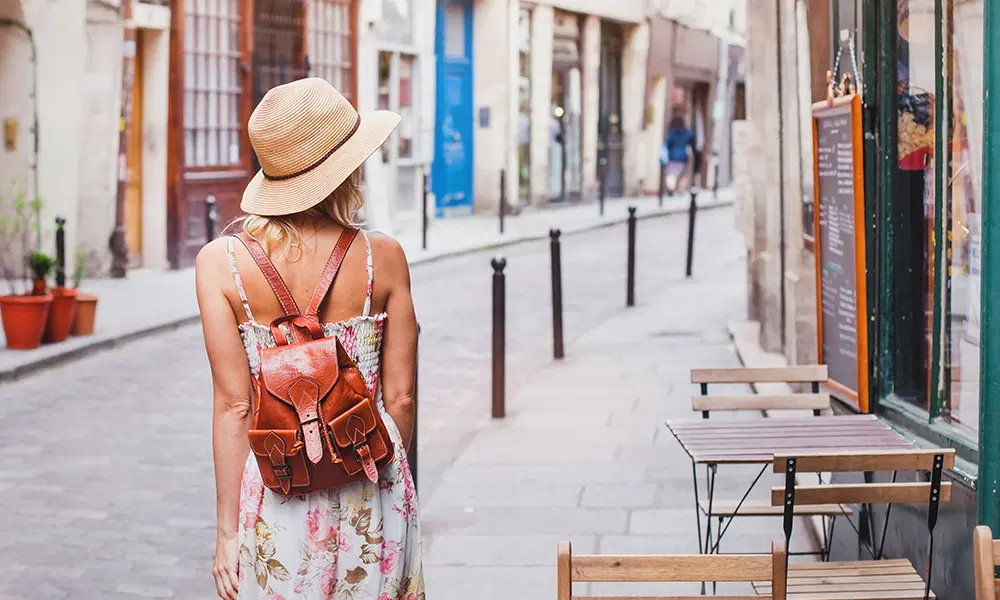
The Portuguese people value presentation. They tend to dress in a smart, understated, and elegant way, even for casual outings.
You don’t need to wear formal clothes, but leaving the stereotypical tourist gear behind will help you blend in.
A couple of key tips for anyone visiting Portugal: When entering a church, always cover your shoulders and knees as a sign of respect. Also, swimwear is strictly for the beach or pool. Walking through a town or city in your bikini or swim trunks is considered inappropriate. A simple cover-up is all you need.
Also Check: 10 Least Safe European Cities for US Travelers (Don’t Visit Before Reading This)
Learn to Read the “Polite No”
Direct confrontation is generally avoided in Portuguese social interactions. This can be confusing for visitors used to more direct communication. Instead of a firm “no,” you might hear a softer, more ambiguous response.
Phrases like “Vamosver…” (Let’s see…) or “Talvez…” (Maybe…) are often a polite way of declining a request without causing offense.
This isn’t meant to be misleading. It’s a cultural mechanism to preserve social harmony. Just listen carefully and do not push for a more direct answer.
Respect the Cobblestones and the Queue
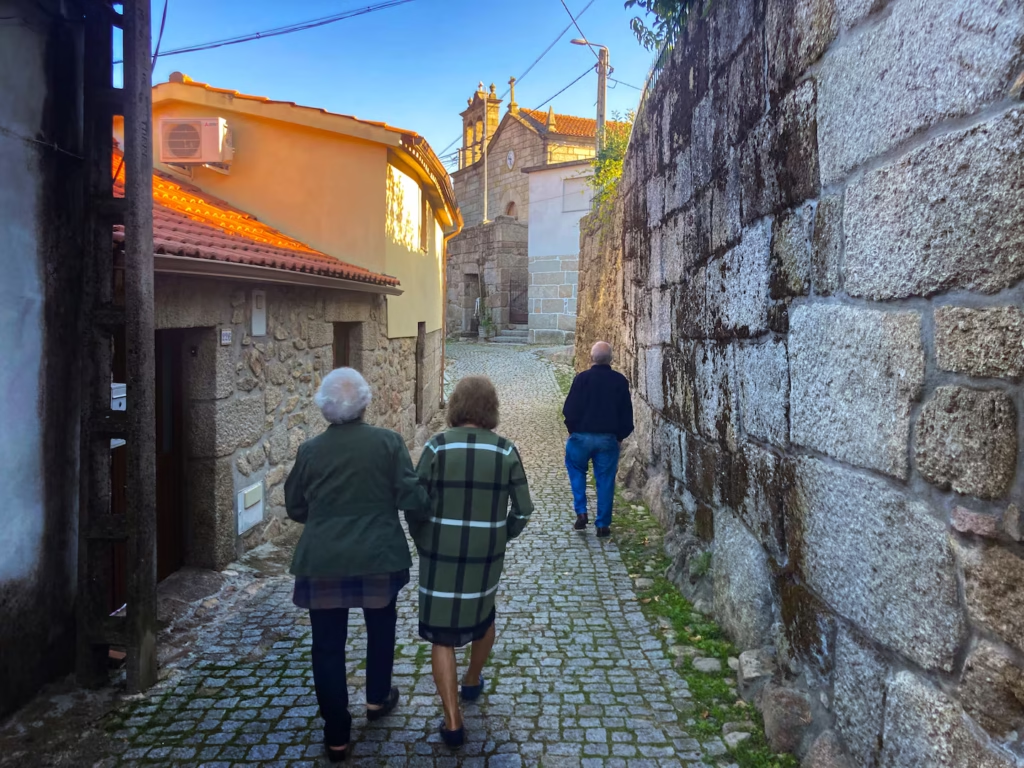
Finally, two practical tips that show respect for public space. First, Portugal’s beautiful cobblestone sidewalks, the calçada portuguesa, are notoriously uneven and slippery.
Leave the flip-flops for the beach and wear comfortable, supportive shoes for walking in cities like Lisbon and Porto. Your feet will thank you.
Second, queuing is a serious matter. Whether you’re at a bus stop, a bakery, or a government office, you must respect the line. Cutting in front of others is considered extremely rude.
Both of these small acts, wearing the right shoes and waiting your turn, show you are an adaptable and respectful visitor.
You May like: These 14 Hidden European Towns Are So Beautiful, You’ll Wonder Why They Aren’t More Famous
Conclusion
After six years, I’ve come to see these social codes as an invitation. They are more than just a list of things to do or avoid.
Small gestures, be it a proper greeting, a patient smile, or a few words of Portuguese, go a long way. They show that you see Portugal as a home to its people and not just another tourist spot.
Have you been visiting Portugal? What other unspoken rules in Portugal did you discover during your travels? Share your stories and tips in the comments below!